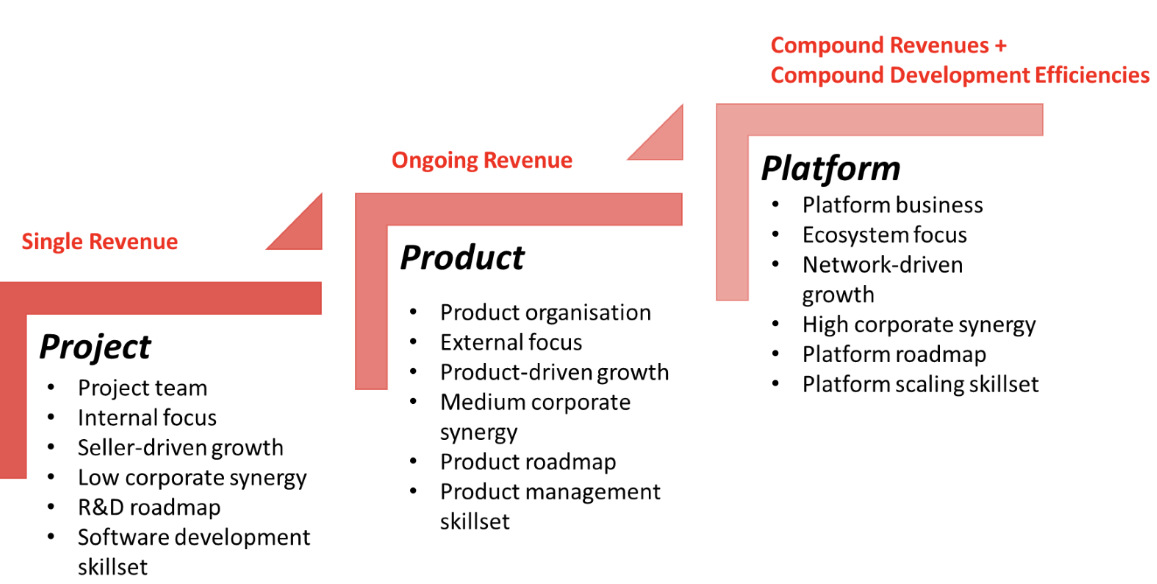In an era where technology and online businesses are booming, the telecommunications industry surprisingly faces a decline in global revenues. This trend stems from a failure to capitalize on the major investments in advanced network standards such as 4G and 5G. Competitors outside the industry have harnessed these technologies to reap billion-dollar returns and premium market valuations, leaving telcos to pick up the bill.
This cannot continue. Telcos need to capture more value from the next generation of networks and services, beyond their traditional connectivity revenues. The good news is that the confluence of technologies including AI, IoT, cloud and edge computing creates the conditions for a new generation of industrial (B2B) applications that depend on advanced telco networks, API’s and telco orchestration capabilities to make them happen. Telcos need to build these new applications not as projects (single revenue) or products (ongoing revenue), but as platforms (compounding revenues), that are inherently composable and reusable. Smart industry platforms generate compound savings in development costs and compound revenues as the platform is deployed across multiple ecosystems.
The challenge telcos face in building industry platforms is that their organizational structures, technical development models, and go-to-market approaches are designed for a legacy environment characterised by internal service provision and proprietary applications. As a result, although many operators see the potential for industry platforms, they struggle to get them from concept to market.
The solution is an integrated approach to platform building covering strategy, skills, reorganisation and partnerships.

Fundamentally, the software development paradigm in the telco needs to shift from projects to products to platforms. Building platforms unlocks the synergies and network effects that drive growth at scale. At the same time, the go-to-market model also needs to shift from linear, RFP-driven sales to a partnership-based approach that addresses technical and non-technical stakeholders on the customer side. Investors and governments may also be engaged as partners in platform initiatives that tackle key social and environmental problems.
This transition from project to product to platform is more than a change in business strategy; it represents a fundamental transformation in the way telecommunications companies operate and compete. By embracing open architectures, redefining sales and performance metrics, and fostering collaborative ecosystems for smart platform development, telcos can not only survive but thrive in the next phase of digital transformation.
For more information on Effectus Research approach to industry platform building, or to arrange a discussion with our specialist consultants around the world, please visit www.effectusresearch.com.

